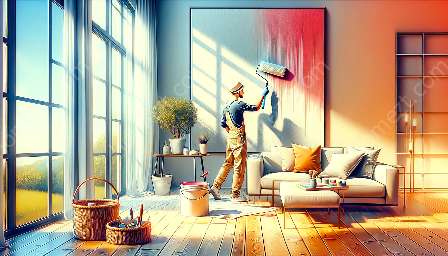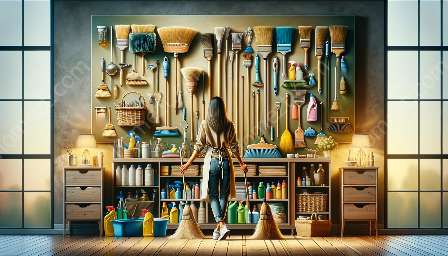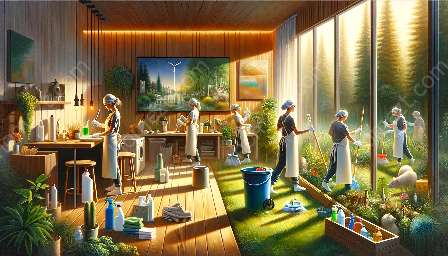Safety Precautions in Painting
Painting can be a rewarding and creative endeavor, but it's important to prioritize safety while working with paints, solvents, and other tools and materials. Follow these essential safety precautions to protect yourself and others during painting projects:
- Use Personal Protective Equipment (PPE): Always wear appropriate PPE, including safety goggles, a respirator mask, gloves, and protective clothing to prevent skin contact with paints and chemicals.
- Ventilate the Workspace: Ensure good ventilation in the painting area by opening windows and using fans to minimize exposure to fumes.
- Handle Paints and Chemicals Safely: Read and follow the manufacturer's instructions for handling and disposing of paints, solvents, and chemicals. Store them in a well-ventilated, secure location away from children and pets.
- Reduce Fire Hazards: Be cautious when using flammable materials like oil-based paints and solvents. Keep them away from open flames and sources of ignition.
- Properly Dispose of Waste: Dispose of paint cans, solvents, and other hazardous waste responsibly, following local regulations and guidelines for hazardous waste disposal.
- Be Mindful of Ladders and Scaffolding: When working at heights, use stable ladders or scaffolding, and always follow ladder safety guidelines to prevent falls and injuries.
Safety Precautions in Domestic Services
Whether you're performing DIY home improvements or hiring professionals for domestic services, safety should always be a top priority. Here are key safety precautions to consider for various domestic services:
Electrical Work
- Turn Off Power: Before conducting any electrical work, turn off the power at the circuit breaker to avoid potential electric shock.
- Use Insulated Tools: When working with electrical components, use tools with insulated handles to prevent electrical contact.
- Waterproofing: Use waterproof materials and enclosures in wet areas and outdoor installations to prevent electrical hazards.
Plumbing Services
- Wear Protective Gear: When dealing with drains and sewage systems, wear appropriate protective gear such as gloves and masks to minimize exposure to hazardous substances.
- Proper Handling of Chemicals: Use caution and follow safety guidelines when using plumbing chemicals to avoid skin and eye irritation.
- Prevent Slips and Falls: Keep work areas dry and clean to prevent accidents related to slippery surfaces.
Carpentry and Woodworking
- Wear Eye and Ear Protection: Utilize safety goggles and ear protection when cutting or sanding wood to prevent eye injuries and hearing damage.
- Work in Well-Lit Areas: Ensure proper lighting in your workspace to clearly see and work safely with tools and materials.
- Secure Tools and Workpieces: Use clamps or other appropriate methods to secure workpieces to prevent them from shifting during cutting or shaping.
General Safety Precautions for Domestic Services
- Keep Children and Pets Away: When engaging in domestic projects, create a safe and supervised environment for children and pets away from potentially hazardous areas.
- First Aid Kit Availability: Have a well-stocked first aid kit readily accessible in case of minor injuries or accidents.
- Focus on Ergonomics: Practice good ergonomics to minimize strain and injury from repetitive tasks or heavy lifting.





































